From Film Quarterly, Fall 2008 (Vol. 62, No. 1). I’ve more recently watched Curtis’s powerful and eye-opening Bitter Lake (2015) as well as his somewhat more paranoid HyperNormalisation (2016), also readily available for free on the Internet, which generally maintain the high level of the work discussed here. And I’m currently about halfway through Can’t Get You Out of My Head, which premiered on BBC last month. Some of my ambivalences about Curtis’ tendency to work both sides of the street — to criticize conspiracy theories and use them as seductive bait almost simultaneously; and to employ intellectual, non-intellectual, and even anti-intellectual means of persuasion in his storytelling with equivalent amounts of fervor — remain, but he’s too provocative to ignore.– J.R.

There’s been a steady improvement over the course of the three most recent BBC miniseries of Adam Curtis — The Century of the Self (2002, four hour-long episodes), The Power of Nightmares: The Rise of the Politics of Fear (2004, three hour-long episodes), and The Trap: What Happened to Our Dream of Freedom (2007, three hour-long episodes) —- both in terms of their intellectual cogency and persuasiveness and in terms of the interest of Curtis’s developing, innovative style of filmmaking. Read more
From the Soho News (December 23, 1980). — J.R.

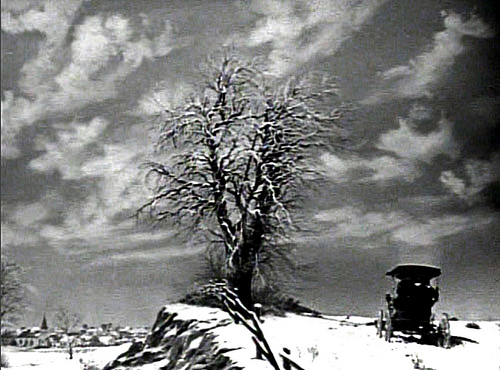
“This film was made in violent contrast to Citizen Kane,” François Truffaut once wrote of The Magnificent Ambersons, Orson Welles’ second feature, “almost as if by another filmmaker who detested the first and wanted to give him a lesson in modesty.” In comparable fashion, Alain Resnais — a rationalist surrounded by surrealist nightmares — has often described some of his films as being made in reaction (and contradistinction) to the ones that preceded them.
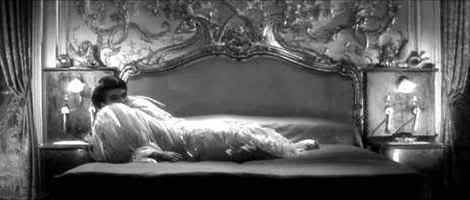
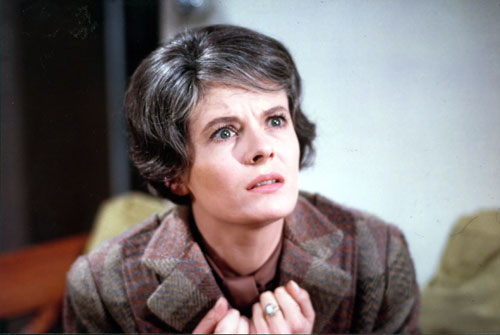
Thus the subjective, highly mobile camera of the apolitical Last Year at Marienbad (1961) was countered by the objective, stationary camera setups and political contexts of Muriel (1963). And similarly, the proliferating dreamlike fictions and Lovecraftian enchantments of Providence (1977) have led to the documentary, demonstration-style demeanor and scientific wit of Mon Oncle d’Amérique (1980), his latest film — a movie that also attempts to combine elements from his nonfiction shorts and previous fictional features.


It’s been seven years since I last interviewed Resnais — on a soundstage at Epinay-sur-Seine, a Parisian suburb where he was shooting Stavisky… Greeting him recently at his Park Lane suite, I still found him almost awesomely handsome at 58, and no less delicate, modest, and cordial in his manner, despite a continuing shyness that he has come some distance in mastering. Read more
From Film Quarterly, Fall 2009. Note: Peter Thompson’s complete work as a filmmaker, along with many extras, is available here. There is also a web site devoted to his work at chicagomediaworks.com — J.R.
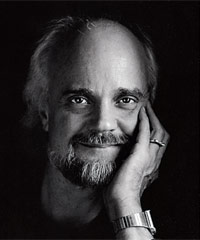
It would hardly be an exaggeration to call Peter Thompson the best Chicago filmmaker you never heard of. His half a dozen films, four shorts and two features, span 28 years, and their continuities and discontinuities with one another seem equally important. Pertinent to all six films are diverse aspects of Thomson’s background: as a classical guitarist who studied with Andrès Segovia in Siena, as an undergraduate and graduate student in comparative literature (University of California, Irvine), as a onetime Navy photojournalist who teaches photography at Columbia College Chicago, and even as a first cousin of the special effects pioneer Douglas Trumbull.(Full disclosure: Thompson has been a friend for almost two decades — and a neighbor for roughly half that time — but it was my enthusiasm for his first two films that initially sparked our friendship.)
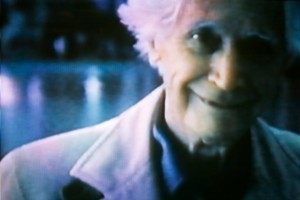
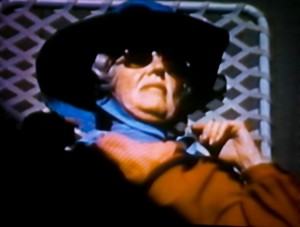
His shorts come in two pairs, each one a diptych. Two Portraits (1982, 28 minutes) is devoted to his parents and each portrait works with a minimalist expansion of limited footage juxtaposed with offscreen voices—those of Thompson and his late father in the first part, Anything Else, and those of his mother reading from her diaries in the second part, Shooting Scripts. Read more










